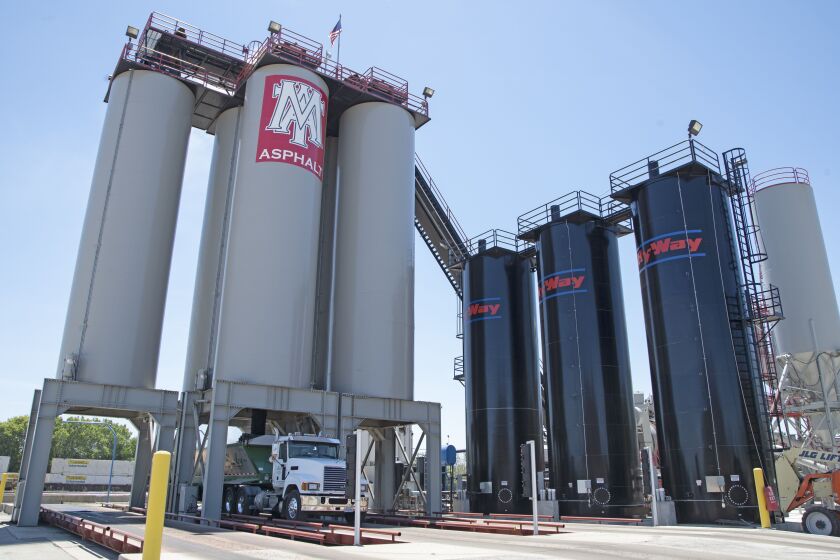Mayor Lori Lightfoot’s administration has included new environmental requirements for operators of asphalt plants seeking city contracts.
The move follows a decision last June to reject all bids for $500 million in asphalt contracts after concerns about air pollution. Private companies supply city crews that fill potholes and repair streets.
One plant, MAT Asphalt in McKinley Park, has been a lightning rod for neighbors who lodged hundreds of odor and nuisance complaints over the last few years.
Under newly issued guidelines, the city is telling bidders:
*To build equipment that captures almost all harmful gases known as volatile organic chemicals released from their operations during the production and loading of asphalt.
*Limit the number of areas awarded to a single bidder. Contracts cover five areas of the city, and no bidder can be awarded contracts for more than two.
*Document the amount of recycled materials used in making asphalt.
“The city aims to protect the environment and human health, as well as promote sustainability, through its contracts with asphalt plants,” a city bid document says.
Bids are due next month. The pollution controls need to be in place by April 2025.
The emissions controls are the most significant change to the way the plants operate.
Currently, a joint venture known as Reliable Ogden, with two Southwest Side asphalt plants, has the city contracts. A representative declined to comment.
MAT co-owner Michael Tadin Jr. said his plant is the newest and cleanest of the area asphalt plants.
But the plant is across from the community’s namesake park on Pershing Road and that upset residents when it opened in 2018.
Last year, MAT provided low bids for asphalt work across the city. That angered residents worried about additional production.
“This is another investment that further reduces our operational impact on the community,” Tadin said. “We applaud the city for raising the environmental bar in this way and we look forward to the next stage of the bidding process.”
A community group praised the move but urged the city to also crack down on polluters.
“It’s a start, but it’s not enough,” said Alfredo Romo, executive director of Neighbors for Environmental Justice in McKinley Park. “So far, there is no evidence that the city has the capacity or the desire to hold companies accountable for environmental violations.”
Brett Chase’s reporting on the environment and public health is made possible by a grant from The Chicago Community Trust.





